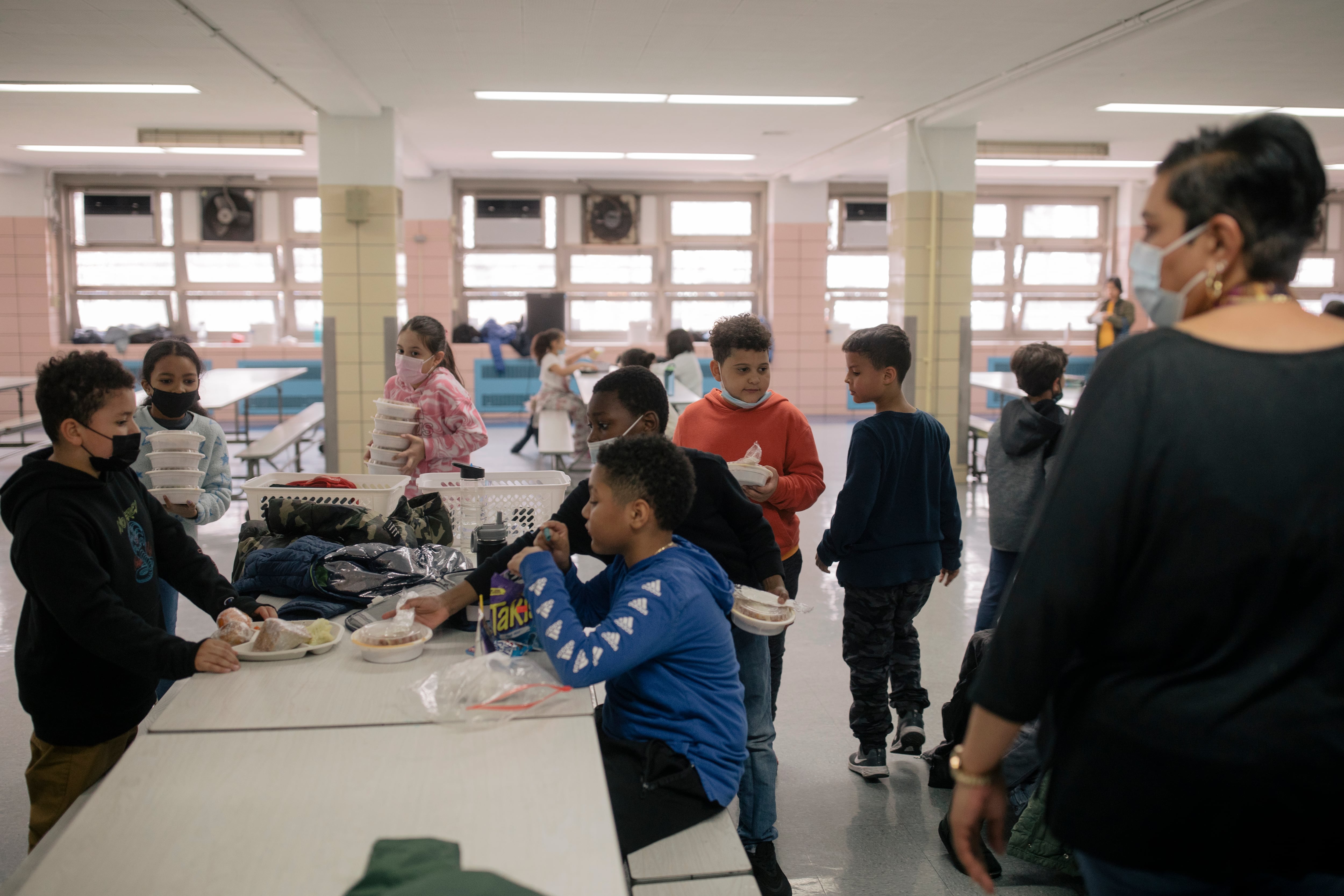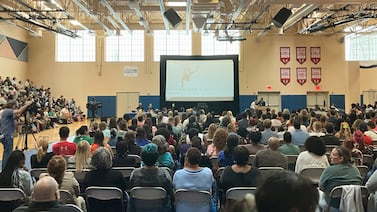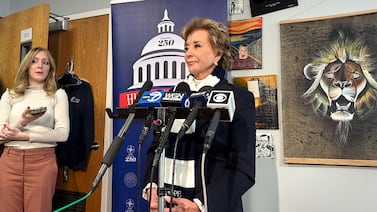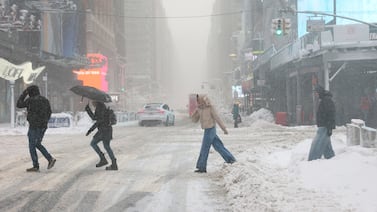Sign up for Chalkbeat New York’s free daily newsletter to keep up with NYC’s public schools.
Families of more than 90,000 eligible children in New York City have not redeemed recent allotments of pandemic food benefits, according to data obtained by Chalkbeat.
That means at least $35 million dollars in potential benefits remain unused and could expire early next year, with New Yorkers losing out on the federal funds.
The funds — known as the Pandemic Electronic Benefit Transfer, or P-EBT — have been disbursed in several chunks since 2020 to help cover meal costs for families whose students usually receive free meals at school. Because New York City’s public schools have universal meals, all families are eligible regardless of household income.
This year, the state distributed multiple rounds of funds, including $120 per child for the summer of 2023, as well as at least $391 per child for the summer of 2022 and the 2021-22 school year. (Though funds from the latter disbursement could total as much as $1,671 per child based on COVID-related absences or remote-learning days during the year.)
In total, the state has issued roughly $5.4 billion in P-EBT benefits since 2020, with about 60% of benefits issued directly to low-income families who receive federal benefits through the Supplemental Nutrition Assistance Program, or SNAP.
Advocates have praised the program for providing critical support across New York, especially as the effects of the pandemic placed additional strain on struggling families.
But among non-SNAP families, more than 90,000 students in the city had not redeemed funds from the 2021-22 school year and 2022 summer allotment, according to state data shared by education consultant David Rubel and confirmed by the state’s Office of Temporary and Disability Assistance.
Among families who were receiving P-EBT cards for the first time, 41,271 had not spent any of the funds. For those with existing P-EBT cards, 49,465 had not used the benefits, either.
Liz Accles, executive director of Community Food Advocates, expressed concern over the high number of families who had yet to use the funds. She worried some may have encountered difficulties accessing them, while others may be unaware they exist or choosing not to use them.
For many in the city, the P-EBT program has been a “lifesaver,” she added.
“The vast majority of New York City public school families are struggling financially to make ends meet, and the cost of groceries is significant for everyone,” Accles said. “We hope that everyone will redeem the benefits.”
Rubel obtained the data earlier this month through a request under the state’s Freedom of Information Law, prompted by concerns that many families might be unaware of recent disbursements — especially those with limited English proficiency. He said he’s followed P-EBT news closely, but he wasn’t aware of the summer 2022 disbursement until he came across a related Chalkbeat article.
“If I didn’t know about it, what about the families of the other million children in our public school system,” he said, adding he worried many families may have lost or discarded their P-EBT cards. “There’s a lot of money here sitting on the table.”
All households with phone numbers on file with their school district should have been notified by text when benefits became available, according to OTDA. Those receiving benefits for the first time were provided additional instructions about how to activate and use their P-EBT cards. Families receive another text if benefits remain unused six months after receiving them, state officials said.
The state’s Education Department also issued messaging about the benefits to all school districts in New York, officials added.
Still, for families who haven’t heard about the benefits, have forgotten, or have otherwise yet to redeem them, there’s still time to spend funds from the recent allotments.
Here’s what families need to know:
Who is eligible?
All families with children who attended K-12 in the city’s public schools during the 2021-22 school year were eligible for food benefits allotted for that year and the summer of 2022. Those who attended school last year were also eligible for the summer 2023 benefit. Those in charter, private, and other schools, or prekindergarten, who received free meals through the federal school lunch program were also eligible.
Families were eligible regardless of their immigration status.
How were benefits distributed?
Families that receive SNAP, state Temporary Assistance, or Medicaid benefits got their disbursements directly added to those accounts.
All other eligible families received funds on a P-EBT card, which was issued with their first allotment of benefits.
How can you replace your state-issued P-EBT card?
Those who have lost their P-EBT card can get a replacement by calling 1-888-328-6399.
There is no deadline for requesting a replacement card, according to state officials. Though if one is needed, officials suggest requesting one as soon as possible.
What can you use P-EBT for?
The benefits can only be used to purchase food items.
When do the benefits expire?
P-EBT funds are available to families for 274 days, or about nine months, after being issued.
Each time a family spends some of the funds, the remaining balance is valid for another 274 days, state officials said.
Why should you consider using the benefits?
All families should spend the benefits, regardless of their financial status, Accles said.
P-EBT benefits, like the federal stimulus checks that were distributed across the pandemic, provide community benefits that extend beyond the food they purchase, she added. While the funds can help cover groceries and other meal costs, their use also bolsters the local economy.
“There is a dual purpose to this,” Accles said. “It’s in everyone’s interest for those dollars to be used.”
Julian Shen-Berro is a reporter covering New York City. Contact him at jshen-berro@chalkbeat.org.







